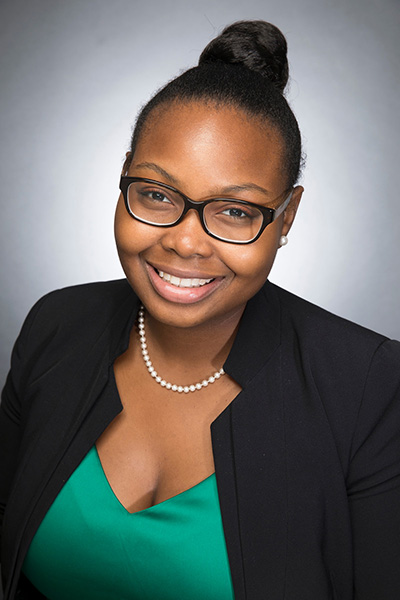
Toddchelle Young works as a Data Analyst in the National Institutes of Health’s (NIH) Office of Equity, Diversity and Inclusion (EDI) and has shared her perspective about how public health connects us all.
What is public health? According to the CDC Foundation, public health is “The science of protecting and improving the health of families and communities through the promotion of healthy lifestyles, research for diseases and injury prevention and detection and control of infectious diseases.” Overall public health is defined as protecting the health of all populations.
Growing up in New Haven, Connecticut, Toddchelle observed her community’s dire need for quality and affordable health care resources to address the variety of health disparities present at the time. She prides herself on her fervent desire to be a part of the eliminating health disparities in low-income urban communities.
While attending Georgetown University, Toddchelle volunteered and interned at Prevention Works! (PW), a harm reduction non-profit organization in Washington, D.C. that supported individuals struggling with drug use and interrelated social and health challenges. From her experience on the mobile unit, assisting with servicing, educating, and helping individuals in Southeast, D.C., Toddchelle knew that public health was an area she wanted to pursue.
PW helped individuals struggling with drug use and related social and health problems. Several years ago, this public health enthusiast who saw how much the community gained through PW was disappointed by the closing of the program due to a lack of funding. Toddchelle stated that it "saddened her that this great organization, which was such a major help to the community had to close their doors." She saw how the community looked forward to the organization giving them the support and help they needed to overcome their addiction to drugs and preventing blood-borne infectious diseases such as HIV and Hepatitis C.
Nevertheless, having known the regulars in the community that came to her and the team for assistance, Toddchelle continued to do what she could to help in any way possible. As opposed to reading about the HIV/AIDS and drug epidemic in her community by way of university studies or news media, Toddchelle chose to get involved in organizations that were solution-driven. Through PW and other programs, Toddchelle connected with residents “East-of-the-River” in Wards 7 and 8, assisted in HIV testing, and distributed clean syringes and personal care kits.
Toddchelle was so inspired by her internship that she decided to explore the social conditions impacting the people she served through her Undergraduate Senior Thesis and to obtain a Master’s Degree in Public Health from Columbia University in Sociomedical Sciences and a certificate in Social Determinants of Health. She has also continued to volunteer at various community organizations to help disadvantaged communities impacted by health disparities.
When Toddchelle is not working as an Analyst for NIH, she takes classes while preparing to take the MCAT. She is an aspiring physician in hopes of improving the lives of others. She is also a member of the American Public Health Association (APHA) to ensure she remains updated on the many trends and the latest on public health issues.
Toddchelle’s favorite quote is; "You can only become truly accomplished at something you love. Don’t make money your goal. Instead, pursue the things you love doing and then do them so well that people can’t take their eyes off of you." This symbolizes her passion for service and public health.
Public health also connects us all through our research. At NIH, the National Institute on Drug Abuse (NIDA) released its Strategic Plan for 2016 - 2020: Advancing Addiction Science, focusing on its mission to advance science on the causes and consequences of drug use and addiction and to apply that knowledge to improve individual and public health. Their goals are as follows:
- GOAL 1: Identify the biological, environmental, behavioral and social causes and consequences of drug use and addiction across the lifespan
- GOAL 2: Develop improved strategies to prevent drug use and its consequences
- GOAL 3: Develop new and improved treatments to help people with substance use disorders achieve and maintain a meaningful and sustained recovery
- GOAL 4: Increase the public health impact of NIDA research and programs
You can read about how this area of public health at the NIH is connecting to future research in helping individuals through a scientific viewpoint.
Do you have a story idea for us? Do you want to submit a guest blog? If it's about equity, diversity, or inclusion, please submit to edi.stories@nih.gov.
For news, updates, and videos, follow or subscribe to EDI on: Twitter, Instagram, Blog, YouTube.






